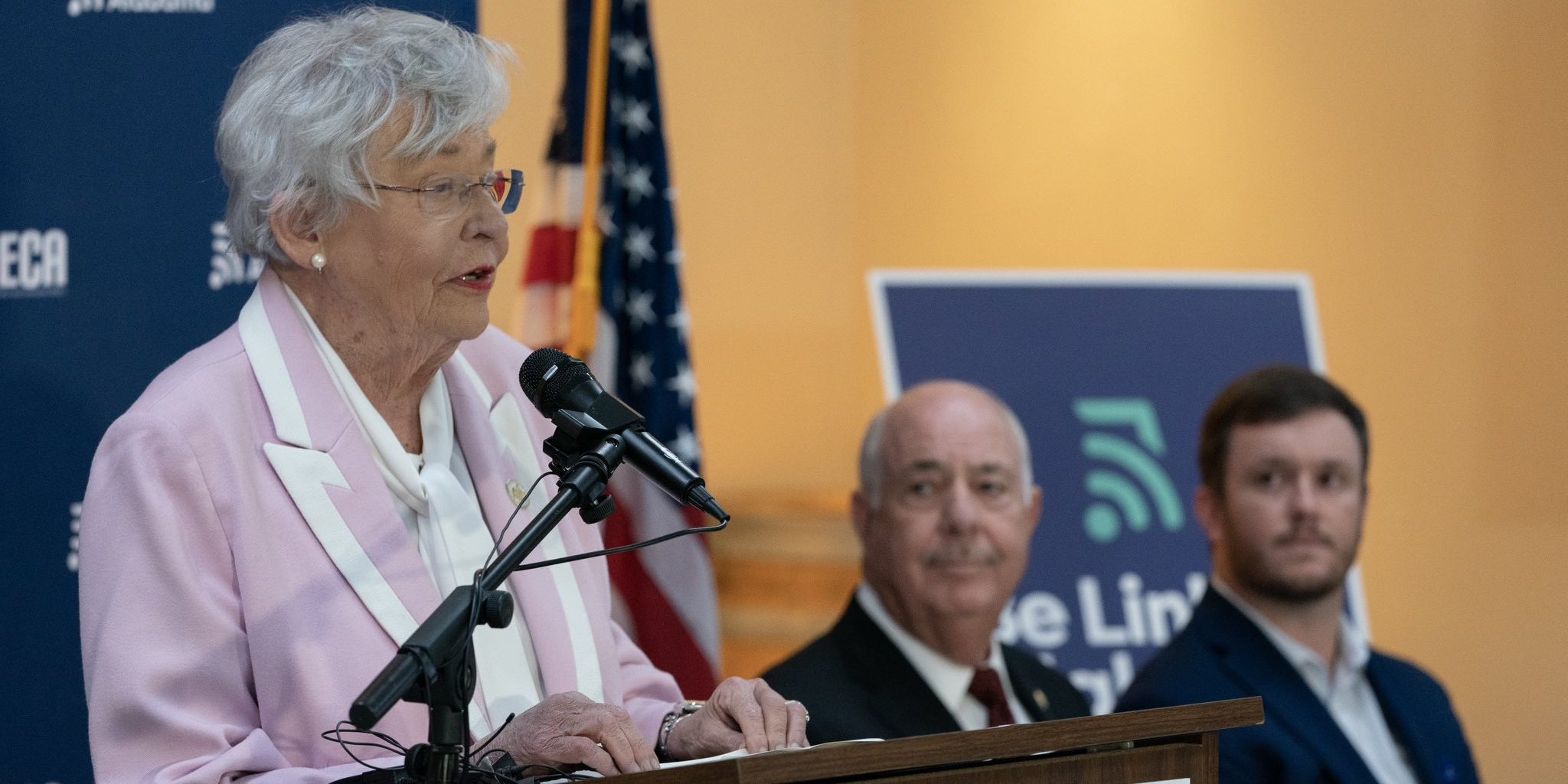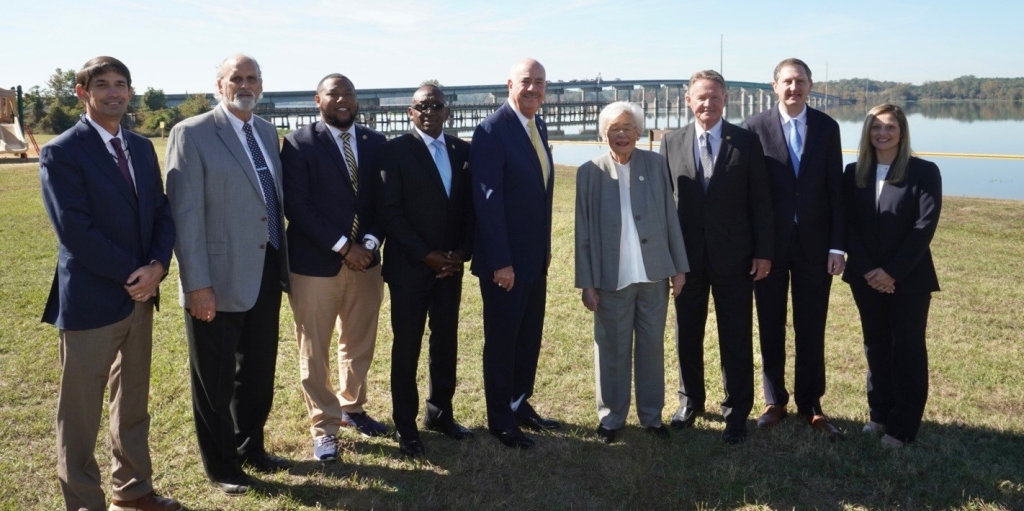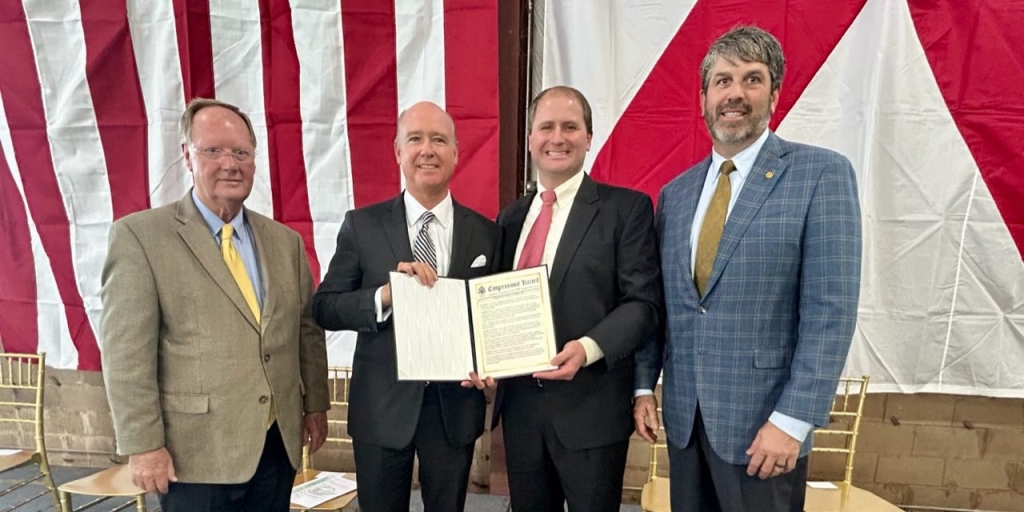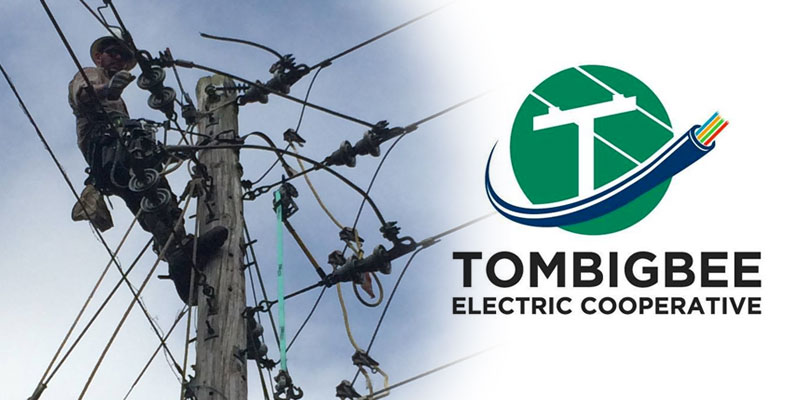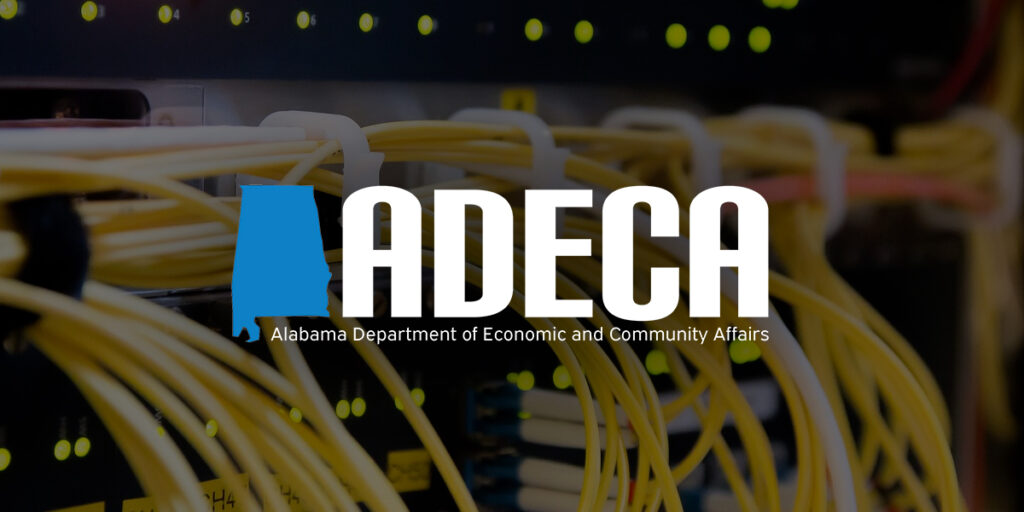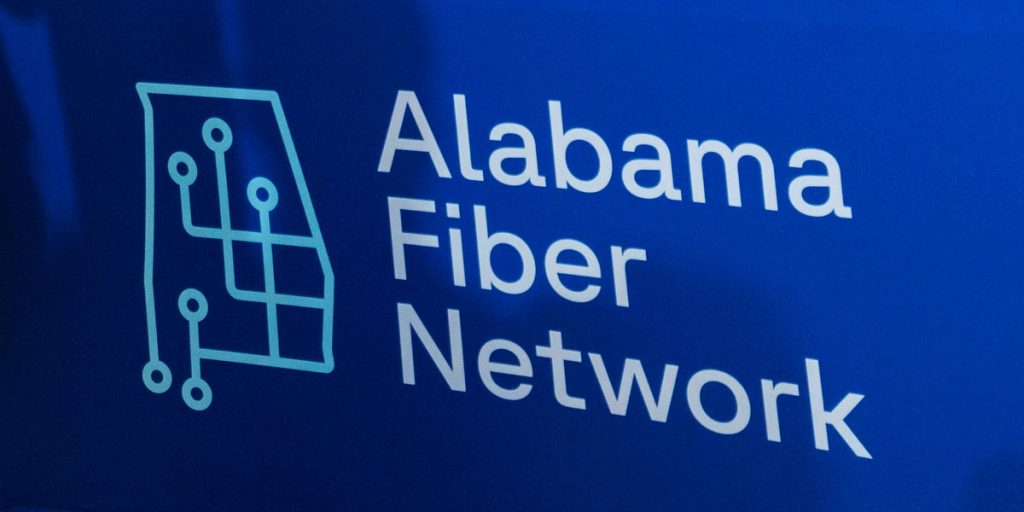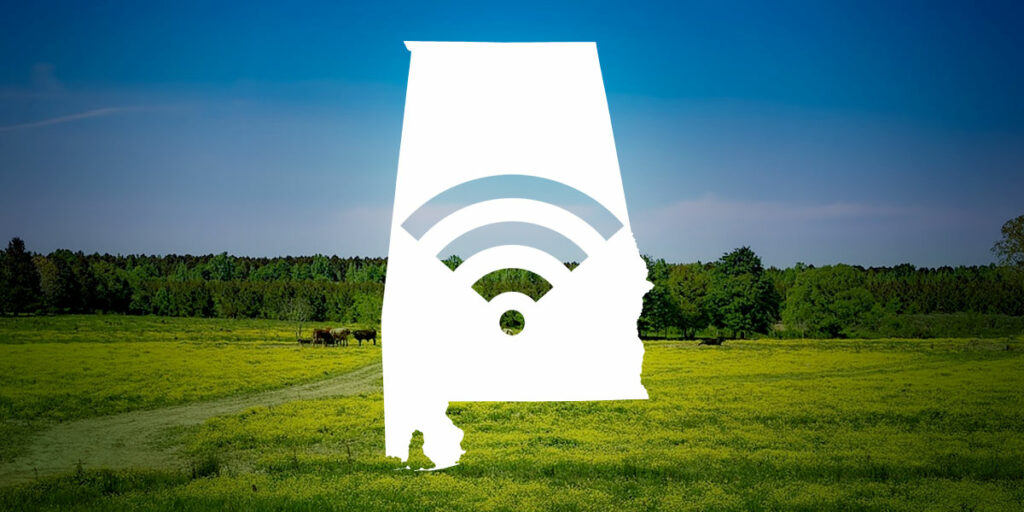Calling broadband access “a lifeline,” Gov. Kay Ivey made a visit to Atmore Community Hospital, the third stop on her broadband tour of Alabama.
Ivey discussed the importance of high-speed internet in allowing Alabamians to access telehealth services, while highlighting the progress being made in broadband projects in Escambia and Baldwin counties, as well as across the state.
“Broadband availability is not just for our convenience – it is a lifeline, particularly evident in telehealth services,” Ivey said. “For thousands of Alabamians in rural areas, telehealth bridges the gap to medical facilities, and without broadband, this vital resource remains out of reach for many.
RELATED: Ivey on ‘Broadband Tour’ promoting expansion
“I am proud to say Alabama remains committed to expanding our digital infrastructure, aiming to connect households, businesses and institutions. Our broadband journey continues until every Alabamian has the ability to access high-speed internet.”
At today’s event, Ivey was joined by Alabama Department of Economic and Community Affairs Director Kenneth Boswell, Sen. Greg Albritton (R-Atmore) and Rep. Alan Baker (R-Brewton).
https://twitter.com/GovernorKayIvey/status/1735033824101163027
The state has committed more than $17 million in grant and matching funds for broadband projects which will give more than 3,600 unserved addresses the ability to be connected in Escambia and Baldwin counties. This will result in more than 140 miles of new fiber. Additionally, the overall success of the Alabama Broadband Accessibility Fund was discussed.
“When you look at the digital world we live in today, access to broadband infrastructure is just as important, in many ways, as having access to electricity or running water,” Albritton said. “But for many Alabamians, especially those living in tougher to access, rural areas of our state, getting connected to high-speed internet is difficult and expensive. That’s why the programs we have funded through the legislature are so important, they give internet service providers the support needed to connect these hard-to-reach areas so that no Alabamians are left out.
“I have been proud to support broadband expansion in my leadership role in the Alabama Senate, and I will continue my work on this issue until all Alabamians have access to the 21st century technologies needed for everyday life.”
RELATED: Be Linked Alabama: Interactive map lights up broadband growth
ABAF, which is funded by the Alabama Legislature, supports targeted projects in communities in need of high-speed internet access. These funds, awarded by Ivey and managed by ADECA, give internet service providers the ability to execute projects that connect individual households, businesses, community anchor institutions such as libraries and schools, and others to broadband infrastructure.
Since 2018, Alabama has invested approximately $82 million in state dollars through grant awards supporting more than 100 projects through the Alabama Broadband Accessibility Fund. Once all Alabama Broadband Accessibility Fund projects awarded to date have been completed, access to broadband service will be available to more than 72,000 Alabama households, businesses and community institutions that currently have no option to subscribe.
“Our continued progress in expanding high-speed internet access would not be possible without a unified team working hard every day to accomplish our state’s broadband goals,” said Boswell. “This team includes Governor Ivey, the Alabama Legislature, internet service providers, and others too many to name working together to make sure Alabama residents and Alabama communities have the tools needed to thrive.”
For information about the state’s work in expanding high-speed internet access, visit the Be Linked Alabama website. It includes the Alabama Broadband Map, county profiles and dashboards and statewide broadband news.
Be Linked Alabama represents the state’s united effort to expand access to affordable, reliable high-speed internet.
As Alabama works toward achieving the goal of high-speed internet access for all, the statewide initiative is coordinated by ADECA and brings together partners from across the state, including the governor, the Legislature, internet service providers, research institutions, utility companies, community leaders and the public.




